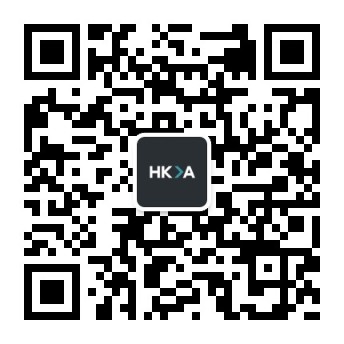Celebrating International Women’s Day 2022
8th March 2022
Today marks International Women’s Day 2022, where we celebrate the social, economic, cultural, and political achievements of women and girls around the world.
At HKA, we’re actively playing a part to achieve gender parity in our business, and we’re getting behind the global effort to #BreaktheBias.
“At HKA, we recognise that gender diversity is key to unlocking increased efficiency, productivity, innovation, creativity and improved employee engagement. I’m proud to be part of our effort to increase awareness of the need for an affirmative approach to encourage and instil equality irrespective of gender, race, religion, age etc.”
Shamila Neelakandan, Partner and Head of Operations Malaysia and Singapore
We asked colleagues from around the globe about bias and what can be done by individuals and industries to overcome it. In first name order:
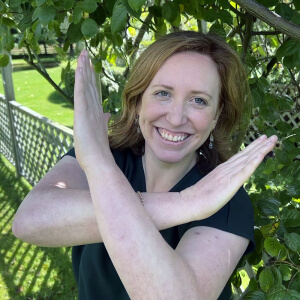
AMELIA EAST
Partner, Head of New Zealand (Oceania)
Amelia East is an infrastructure and major projects specialist with nearly 20 years’ industry experience in construction, infrastructure, water, and energy. She is a qualified solicitor in New Zealand, England and Wales. As Head of New Zealand, Amelia is setting up our local operations and building a team of local talent to complement the team based in Australia.
What led you on this career path?
It was a series of fortunate incidents plus some luck, persistence, and hard work. I have had a varied career, but I like to think I am proof that if you dedicate yourself to what sparks your interests, you will eventually align with a successful career path that highlights your true talents. Each job I have had has helped me understand better what makes me tick (and what doesn’t!). Ultimately, I discovered I liked building things, negotiating, solving complex problems, engaging with people, fast-paced work, political environments and delivery – which I think means I am now in the perfect role!
What does International Women’s Day mean to you?
It is a time to celebrate achievements and take a moment to really reflect on how we can all make a difference.
Have you encountered bias over the course of your career and how did you overcome it?
Most women will have encountered bias at some point, and it’s amplified in traditionally male-dominated industries. I had the good luck of going to a school that gave us confidence in ourselves and ensured gender was never seen as a glass ceiling. I think my natural stubbornness and ability to speak up has helped me overcome bias as it has arisen. Having confidence in your own value and saying what you believe usually helps.
What do you think could be done to break down bias?
People will always be quick to share their opinions, and it is important that these voices and gender expectations do not dictate what you can and cannot do. Believe in yourself. We also need to ensure that gender equality is not simply led by women. Things will only change if all genders commit to action.
How do you think gender diversity and equality can be enhanced within the construction or infrastructure industry?
Industry needs to work out tangible ways to shift the dial. There needs to be more than a strategy or a committee. Leaders should have targets and KPIs to keep a constant focus on the issue. For example, infrastructure project boards should have a female representation target of 50 per cent.
Tell us an interesting fact about you.
When I lived in the UK, I was a season ticket holder for the Crystal Palace football team.
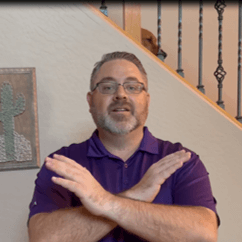
DAVID BONES
Partner, Americas
David Bones has been helping clients investigate, analyse, and resolve their complex litigation disputes for more than 17 years.
What does International Women’s Day mean to you?
International Women’s Day has two primary meanings to me. First, I see it as an opportunity to reflect and celebrate the achievements of so many amazing women around the world. On a personal note, I always think about how proud I am of my mother’s accomplishments. She was a Math major in the 1960s, became a CPA, worked her way up through many corporate relocations/promotions (sometimes as a single mother), and eventually became an Officer of a Fortune 500 company before retiring. I can only imagine the challenges she faced during that journey, and yet she remained positive, humble, and gracious.
The second meaning of International Women’s Day is an opportunity to focus on the significant work still to be done to reach gender equality.
What do you think could be done to break down bias?
This is a challenging question, given we’re talking about breaking down gender stereotypes and unconscious bias that has developed over decades (centuries) of experience in the workplace. I think of this effort in communicating to two primary audiences. The first audience is those already engaged in ED&I issues and recognise that biases exist. These folks are motivated to make a difference in addressing biases across the board, and we’re ‘preaching to the choir’, as they want to do the ‘right thing’ by addressing systemic issues of bias (even when unconscious). These people are instrumental as they regularly go above and beyond their ‘normal’ duties to help push ED&I initiatives in their respective workplaces. A perfect example is HKA’s ED&I committees worldwide that have been doing wonderful work to help HKA become a leader on ED&I issues.
The second audience is the people who may be in a different place on their journey of uncovering bias, but reaching this audience is critical to any organisation’s success. Time after time, we’ve seen the research highlighting how diverse teams improve morale, productivity, results, and ultimately profitability. We need to keep highlighting the benefits of diversity beyond just being a socially responsible focus, but also one that is great for business to give us the best opportunity to keep reaching both audiences.
How do you think gender diversity and equality can be enhanced within the construction or infrastructure industry?
Representation matters, and women are only about 10% of the construction industry workers compared to women making up almost half of the American workforce. Further, only 20% of engineering graduates are women, which is a massive education gap and creates a structural issue regarding candidates in the pipeline for professional/white collar construction-related jobs. Even worse, according to the Harvard Business Review, 40% of women who earn engineering degrees either quit or never enter the profession, exacerbating the structural gender gap in engineering candidates.
There has been a heavy focus on promoting education in STEM for school-age girls, and there is evidence that is helping improve gender representation in scientific-based careers, but there is still a massive problem in the engineering/construction industry. We can help address the issue by first recognising the problem exists and then working together to increase representation of women within HKA’s domain. This may require new recruiting strategies focused on schools, making sure HKA is a place where everyone feels, as Kate Wood says, “free to be their authentic selves”, and promoting that to women and other diverse groups of candidates to attract them to work with us. It’s a big industry, but we have already started the above within HKA and that’s a step in the right direction.
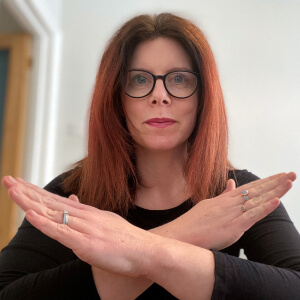
HELEN COLLIE
Technical Director (Europe)
Helen is a chartered structural engineer with over 15 years of industry experience, from design and coordination of arts, education, healthcare and commercial structures, to later becoming a specialist in forensic engineering work. She has a Masters’s in Construction Law and Arbitration. Helen is the author of Ways to increase gender diversity in STEM – and can it help fight climate change?
What led you on this career path?
I discovered engineering just before studying my A-Levels and I knew I wanted to be an engineer straight away. Engineering combines maths with problem-solving, and you get to see the product of your work all around you. I’ve ended up working in the forensics and expert witness field because I love the legal side, but I still sometimes miss design, particularly when I see something I worked on!
What does International Women’s Day mean to you?
International Women’s Day is important because it is a day that focuses on women and their achievements. Having a signposted day to reflect on what it means to be a woman – personally and professionally – no matter where you are in the world. It provides us with a perspective of hope. I really appreciate that. It’s also a chance to celebrate women and women’s achievements and, hopefully, progress for gender equality. HKA organises a social event on the day, which is always good fun.
Have you encountered bias over the course of your career and how did you overcome it?
I was lucky not to encounter bias for a long time – just the odd comment about what an ‘unusual’ career choice I’d made. Later in my career, I did start to notice it: many experiences where, despite being the more senior person in the room, comments were directed at the male colleague I had with me. Being mistaken for a secretary. Missing out on opportunities because people assumed I wouldn’t want to travel with a young family (though the men with young families were invited). For the most part, I ’overcame’ it by simply being polite and moving on. But when it started to have a major effect on my career, I did call it out, and when it became clear it wasn’t going to be acknowledged, I chose to remove myself from a toxic situation with a former employer. I decided that I didn’t want my gender to be an issue in my professional life, as it clearly was to some. At HKA, I appreciate the honest conversations about bias and gender equality and the efforts being made to achieve gender parity.
What do you think could be done to break down bias?
Calling out bias when we hear or see it is really important – I only belatedly realised this, and I’m upset at my former self for not having done more! Everyone, not just women, needs to call out bias. Firstly, it can be an unconscious thing, so awareness is key to counter it. Secondly, we need to instil that such biases are an inappropriate way to think or operate oneself and shouldn’t be condoned.
How do you think gender diversity and equality can be enhanced within the construction or infrastructure industry?
It seems to me there are three key stages at which addressing gender diversity would make a difference.
First at school: girls simply do not aim for construction careers in great numbers. More education is needed about the reality of those careers and how rewarding they can be for absolutely anyone. Encouraging more girls into STEM generally would help.
Secondly, during those early years of a career, visibility of female role models can make an enormous difference in motivating women to stay in the industry.
Finally, support women to reach the higher levels of the career ladder – even if they do happen to be starting or supporting a family. The barriers include bias, outright discrimination, unpleasant working environments, lack of flexible working, an unwillingness to change, and not listening to what women need to function well. The potential advantage of this is enormous, though. Volumes of research have shown that increasing diversity doesn’t just make everybody happier; it makes the business more productive and profitable.
What sustainable practices do you think can or should be integrated into the construction or infrastructure industry?
I have a real interest in what we could and should be doing to re-use building stock instead of constantly building new. There are so many opportunities, and while sometimes it isn’t possible for technical reasons, existing buildings hold a lot of promise (and they’re really interesting to work on!). There should be an onus on new building designers to think about how adaptable and lasting their creations are so that we are not constantly demolishing and rebuilding with all the carbon that entails. We banned single-use plastics, so we should get rid of single-use buildings where we can. To do this, new stakeholders should be brought to the table in construction: objective parties whose guiding interest is climate change. It would be great if some of those came from government, to set an example, and even greater if they were scientists, not just policymakers.
Tell us an interesting fact about you.
In honour of International Women’s Day, this isn’t a fact about me but about my daughter Eva who’s five. When she grows up, Eva wants to be a space explorer (specifically, to go to the moon – because Mars is ‘a bit far’). I would love for that to be possible for her – even as a dream – without her gender even being mentioned.
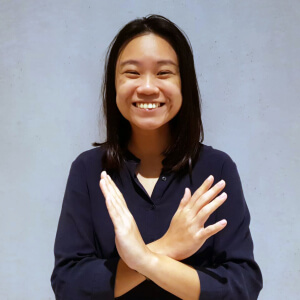
JOYCE TAY
Managing Consultant (Asia)
Joyce Tay is a Chartered Accountant with six years of experience in the quantification of financial damages arising from breaches of contracts or agreements, construction disputes, business interruption, stock inventory losses, personal injury claims. She has also been involved in the investigation of fraud cases. Joyce has worked on engagements in the Middle East, Asia, and Australia, spanning industries, including power, retail, and manufacturing.
What led you on this career path?
Like a typical accounting graduate, I joined a Big 4 accountancy firm after graduation. However, after too many nights of finishing work after midnight, I left the Big 4 and joined a forensic accountancy firm where I gained experience in the quantification of insurance losses. From there, I embarked on a forensic accounting career and haven’t looked back since.
What does International Women’s Day mean to you?
A day to appreciate all women for being a ‘wonder woman’ in their own right!
Have you encountered bias over the course of your career and how did you overcome it?
I have been in work situations or social events where I am the only woman or the only person of my race. As a minority in such situations, speaking up can be pretty daunting. However, it is important not to over-think and be confident in yourself.
What do you think could be done to break down bias?
We should all be more conscious of our thoughts and try to see things from another’s perspective, as this may help us become aware of our own biases. In addition, creating awareness regarding stereotypes would be a good way to educate people on any unconscious bias they have.
Tell us an interesting fact about you.
I love listening to the radio, so I thought of becoming a radio DJ. I auditioned in front of a public crowd at a shopping mall and got through the first round of auditions. I had a few seconds of fame while my voice was on air over national radio in the subsequent rounds!
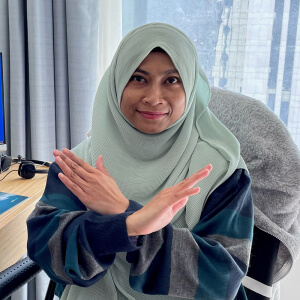
NURUL SABRI
Senior Consultant, (Middle East)
Nurul is a specialist in contracts, claims and dispute resolution with over 14 years of experience in the construction industry. She is a dual-qualified Quantity Surveyor with a law degree (LLB). Nurul is the Chair of HKA’s ED&I Committee for the Middle East region, and she sits on the board of the Chartered Institute of Arbitrators Qatar Branch as the Events and Social Secretary.
What led you on this career path?
The first project I was assigned to after I graduated was terminated by the Employer, so the Contractor brought the matter to arbitration. That was the trigger point. I was curious how disputes within the construction industry were handled, including how the extension of times and additional costs claims were being assessed.
What does International Women’s Day mean to you?
It is a day to show appreciation and celebrate women’s contribution to society. But importantly, I believe we should continue promoting women’s achievements and the value women can bring throughout the year, not just limiting it to one day in March each year.
What do you think could be done to break down bias?
A critical first step is to acknowledge that bias exists. Next is to change mindsets and behaviour. Everyone needs to understand the reason for combating bias, and we should continue to educate people with anti-bias training.
How do you think gender diversity and equality can be enhanced within the construction or infrastructure industry?
Perhaps one of the reasons why there aren’t many women in the construction industry is the typical perception that this industry is male-dominated. However, times have changed. We need to create more awareness of women’s value to the industry.
Tell us an interesting fact about you.
Many people are surprised to find out that I enjoy adventurous and adrenaline-pumping activities. For example, I have been skydiving in Perth, paragliding in Switzerland, water rafting in Bosnia Herzegovina and South Africa, twice tried via ferrata in Oman, hiked and trekked in Nepal, Mongolia, and more. There are still many more activities that I want to do.
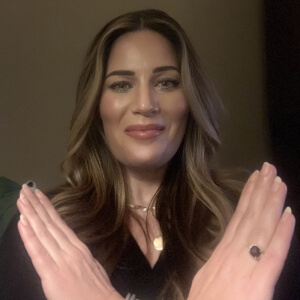
SARAH KETCHUM
Partner (Americas)
Sarah is a damages, quantum, and forensic accounting expert with over 20 years of experience in the construction, commercial damages, and government contracts industries. Sarah holds a BBA in Finance and Business Economics from the University of Notre Dame. She is a member of the American Bar Association (ABA) and the Certified Fraud Examiner’s (ACFE) Greater Chicago Chapter.
What led you on this career path?
I was interested in finding an industry where I could help a wide variety of clients across different industries, all of whom face a unique challenge. Even if the issues faced might be similar, the facts and circumstances of each engagement are unique and different. This path was a way to apply principles and skills learned through education and training, where I would continually grow, develop, and learn something new. I enjoy the intellectual challenge required to critique and identify issues in the opposing side’s position.
What does International Women’s Day mean to you?
International Women’s Day allows us to shine a light and recognise the achievements of women around the world: the big victories as well as the small ones we see in everyday life. It’s also about recognising the struggles that many women still face globally. It’s an opportunity to reinforce the message that each woman is valued and to inspire women to keep going after their goals. We can achieve more by being part of a community of women and male allies, collectively working together and supporting one another.
Have you encountered bias over the course of your career and how did you overcome it?
Yes, prior to joining HKA I have been in situations where it was assumed I didn’t want certain opportunities, or I wasn’t included because it was a male-dominated activity or situation. Early on in my career, I was sometimes on projects where my ideas, thoughts, and proposed solutions were ignored or underappreciated. It often took time to educate people about the opportunities I was interested in and how I could add value with my contribution. Similarly, I had to be more assertive in meetings or presentations and find my voice to persuade and inform clients or my supervisors on the advantages of my proposed solutions and insights. I will readily admit I wasn’t always successful, but I’m hopeful the path will be easier for those women coming behind me.
What do you think could be done to break down bias?
I believe enhanced dialogue between individuals who are willing to listen and learn can break down bias. In my experience, bias, conscious or unconscious, usually stemmed from either an incorrect assumption or incorrect belief that women are limited in their abilities or don’t want certain opportunities. Enhanced dialogue and open-mindedness can take us a long way towards breaking down bias.
How do you think gender diversity and equality can be enhanced within the construction or infrastructure industry?
People need to be open-minded and willing to change their perceptions of what have historically or traditionally been men’s versus women’s roles. In addition, everyone can work to ensure that all team members are valued, heard, and appreciated equally.
What sustainable practices do you think can or should be integrated into the construction or infrastructure industry?
The concept of sustainable construction is the practice of creating a healthy environment that is based on ecological principles. A similar concept based on reducing negative impact should be similarly applied to construction companies’ working environments and organisational cultures. Inclusivity as a sustainable practice creates healthy environments where all employees and colleagues can participate, grow, develop, thrive, and be valued equally and equitably.
Tell us an interesting fact about you?
While in college, I played the piccolo in the Band of the Fighting Irish – marching and playing at every home football game, various away games, and bowl games, in addition to playing in the pep band for men’s and women’s basketball games.
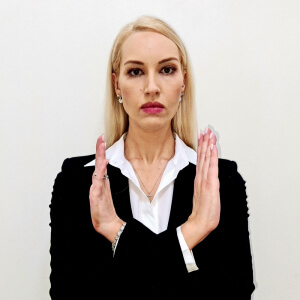
SONIA GUERRA
Senior Consultant (Africa)
Sonia Guerra has over 13 years of experience in the legal and commercial engineering and construction industry. Sonia holds an LLM in Construction Law and Arbitration and is a Practising Associate of The Academy of Experts.
What led you on this career path?
I started on this path as I wanted to show that I am different, that I am capable and that I am worthy of being recognised.
What does International Women’s Day mean to you?
Celebrating how far women have come, acknowledging that women have a voice and recognising that women are equal to men.
Have you encountered bias over the course of your career and how did you overcome it?
Yes, at times, with what I would refer to as microaggressions or unconscious biases. It’s still bias all the same. I overcome bias by showing up the following day (the resilient me!) and still being relevant whilst commanding a presence that has a lot to offer/contribute.
What do you think could be done to break down bias?
Accept that the world is evolving. Spend more time with people who are different from you and don’t treat others in a way that you would not want to be treated. Start noticing your reactions, responses and judgements towards others and increase awareness of bias as it happens.
How do you think gender diversity and equality can be enhanced within the construction or infrastructure industry?
Industry should provide the opportunity for women to have a voice at the decision-making (executive) level. Allow and create equal opportunities for women and men in the industry, with equal pay, and recruit individuals based on merit, knowledge and experience, not gender. Organisations should take a more active stance in adopting policies against harassment and discrimination and implement procedures to discourage and penalise such behaviours, whether related to gender, race or any other aspects. A real work-life balance needs to be implemented so parents/caregivers (men and women) can have a job and raise a family which reflects equality in treatment all around.
Tell us an interesting fact about you.
I have a passion for assembling and building objects without the user manual.
Learn more about ‘Changing Climates: Gender equality today for a sustainable tomorrow’.
Find out more about Equality, Diversity and Inclusion at HKA.
This publication presents the views, thoughts or opinions of the author and not necessarily those of HKA. Whilst we take every care to ensure the accuracy of this information at the time of publication, the content is not intended to deal with all aspects of the subject referred to, should not be relied upon and does not constitute advice of any kind. This publication is protected by copyright © 2024 HKA Global Ltd.


